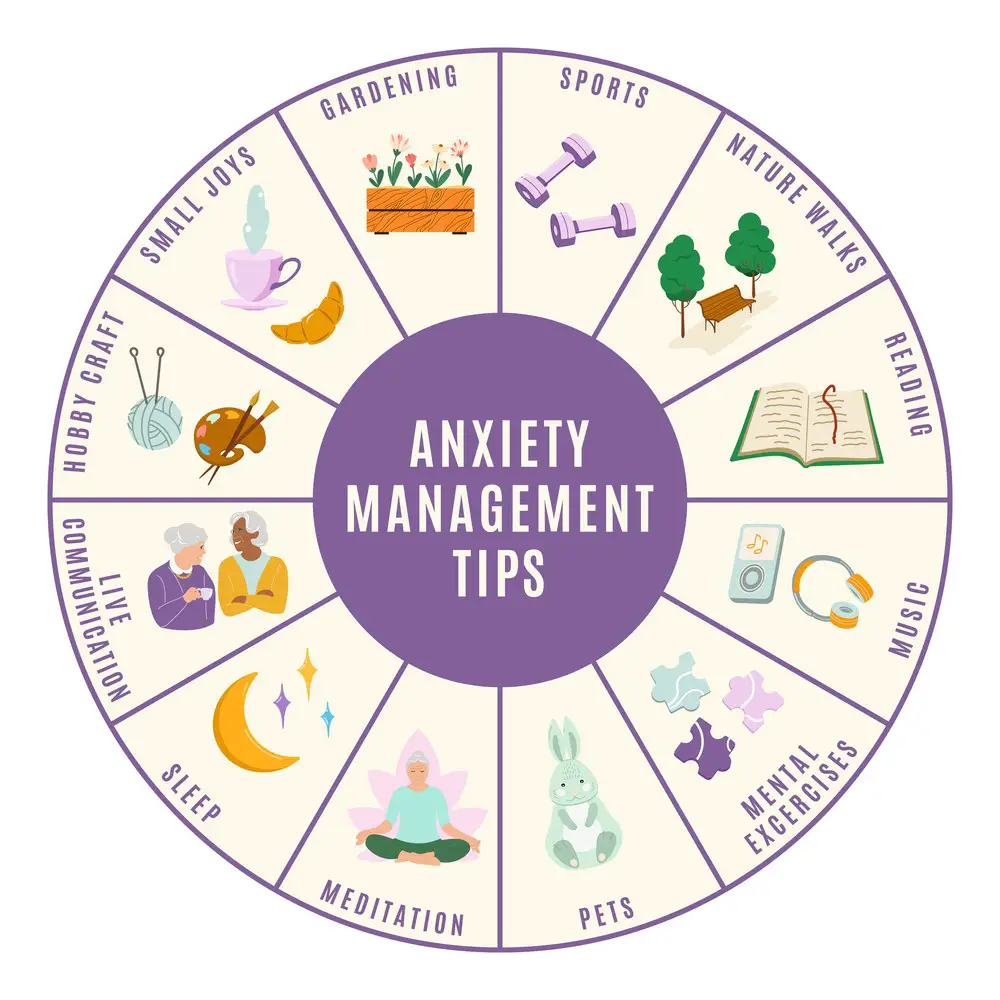As a BetterHelp affiliate, we receive compensation from BetterHelp if you purchase products or services through the links provided
It’s not uncommon to feel a bit of paranoia at work, especially when faced with changes in company culture or organizational shifts. Feeling uncertain about your job security can induce stress and may impact your overall mental well-being. Navigating the difference between genuine signs of impending termination and simple paranoia isn’t always easy, but it requires self-reflection and observation of your workplace environment.
Understanding the potential signs of getting fired is crucial, as it allows you to take action and remain in control of your career’s trajectory. However, it’s equally important to be aware of your tendencies toward paranoia and recognize when your anxiety may be misplaced. Ultimately, it’s about balancing being proactive and avoiding unnecessary stress.
Key Takeaways
- Recognize signs of job insecurity and differentiate between genuine warning signals and paranoia.
- Consider the role of company culture and organizational changes in your feelings of job security.
- If you fear getting fired, take proactive steps to protect your career and mental well-being.
 Understanding Paranoia at Work
Understanding Paranoia at Work
Identifying Paranoid Thoughts
It’s natural to feel stress and anxiety at work, but it’s important to recognize when these feelings turn into paranoia. Paranoid thoughts can cloud your judgment, so look out for signs such as feeling constantly threatened by coworkers or supervisors or doubting the intentions of those around you. Take a step back and ask yourself if these thoughts are reasonable or stem from unfounded fears.
Make a list of your worrisome thoughts and try to pinpoint any patterns. This can help you better understand your mental state and clarify whether you’re experiencing paranoia or just normal work stress.
Paranoia Versus Reality
Once you’ve identified your paranoid thoughts, the next step is to confront them with reality. To do this, ask yourself a few questions:
- What evidence do I have to support my fears? Be honest and look for concrete examples, not just feelings or assumptions.
- What are the possible alternatives to my thoughts? Consider that there may be more neutral or positive explanations for your anxious situations.
- What would a trusted friend or family member say? Seek the input of someone objective and honest to help you gain perspective on your fears.
By questioning your thoughts and comparing them to reality, you can overcome your paranoia and maintain better mental health in the workplace.
Remember, it’s essential to prioritize your mental health and well-being. Controlling your paranoia and balancing stress and anxiety will allow you to achieve a more positive work environment and prevent your fears from damaging your relationships and career.
 Signs You May be Getting Fired
Signs You May be Getting Fired
Observing Changes in Behavior
If you notice your colleagues, supervisor, or manager behaving differently toward you, this might be a sign that something is up. For example, they might avoid eye contact, give you shorter answers than usual, or limit their interactions. When people you usually have a good relationship with start acting distant, it could indicate that they know something you don’t, like plans for your termination.
Unexpected Poor Performance Reviews
Receiving negative feedback out of the blue is another sign that you might be on your way out. Pay attention to any sudden increase in criticism, especially if it isn’t accompanied by specific examples of where you went wrong or suggestions for improvement. If your manager intentionally builds a case against you, they may focus more on documenting a perceived problem rather than helping you improve.
Increased Micromanagement
If you’ve suddenly been micromanaged, it could indicate that your supervisor or manager may no longer trust your abilities to do your job. When management constantly checks in on your progress, scrutinizes your work, or makes decisions for you, this might mean they’re looking for reasons to justify your termination.
Exclusion from Meetings and Discussions
Are you left out of important meetings and discussions you used to participate in? Or has your team started making decisions without your input? This kind of exclusion can be a sign that your role in the company is in jeopardy and that others are beginning to move on without you.
Being Ignored or Avoided by Supervisors and Colleagues
It can be quite unsettling to feel ignored at work, whether it’s by your supervisor, manager, or colleagues. Suppose you feel you’re being treated like an outsider and people are avoiding you. In that case, it may signal that they’ve been informed of your possible termination and choose to minimize their interactions with you to avoid any awkwardness.
Remember, it’s crucial to trust your instincts and observe your work environment to pick up on these subtle cues. Remember that these signs are not definitive proof of your impending termination, but knowing them can help you prepare for potential changes or take proactive measures to improve your situation.
The Role of Company Culture and Organizational Changes
Understanding Corporate Mergers and Acquisitions
Mergers and acquisitions can create an uncertain atmosphere within a company. You might feel anxious about how these changes affect your job security or growth opportunities. It’s natural to question whether a merger or acquisition could lead to you losing your job or facing new challenges in your role. Stay informed about any company news, and view these organizational changes as opportunities for growth and development.
Effect of Company’s Financial Troubles
Financial troubles within a company can lead to changes in its culture and organization. You may feel the effects of cost-cutting measures, reduced investment in training, and a general sense of uncertainty about your job security. It’s vital to stay informed of your company’s financial situation and adapt to the changes as necessary. Look for ways to contribute positively to the organization, demonstrate your value, and keep a positive attitude.
Changes in Job Security and Growth Opportunities
Company culture and organizational changes can significantly impact job security and growth opportunities. Be proactive in seeking new ways to develop your skills and expand your network within the company. Stay aware of company news, attend meetings, and engage with colleagues. By staying involved and adaptable, you can navigate these changes and take advantage of new opportunities.
 From Paranoia to Action: What to Do if You Fear You’re Getting Fired
From Paranoia to Action: What to Do if You Fear You’re Getting Fired
If you feel like you might be getting fired or you’re just experiencing paranoia, there are several steps you can take to put your mind at ease and potentially prevent any negative outcomes.
Seeking Support and Feedback
Communicating with colleagues and superiors is important if you’re worried about your job security. Reach out to them for support and ask for constructive feedback on your performance. This will not only help you gain a clearer understanding of your current situation, but it could also foster open conversations that may dispel your fears.
Documenting Everything
Start putting everything in writing, including tasks you’ve completed, feedback you’ve received, and any other job-related activities. Maintain a record of your accomplishments and positive contributions to the company. This documentation can serve as evidence of your performance in case issues arise in the future.
Exploring Other Career Opportunities
Even if you discover your paranoia is unfounded, exploring other career paths and job openings might still be a good idea. This can help you discover new interests and give you a safety net in case you need to make a career move. Look for opportunities that align with your skills and passions, and don’t limit yourself to just one specific role or industry.
By seeking support, documenting your accomplishments, and exploring other career paths, you take control of your situation and transform your fears into actionable steps. Remember, being proactive and prepared is always better than letting your paranoia take over.
Post-Firing Process
Understanding Layoffs and Getting Fired
First, it’s essential to differentiate between layoffs and being fired. Layoffs typically occur because a company needs to downsize, restructure, or face economic issues. So, don’t blame yourself if you’ve been laid off. On the other hand, when you’re fired, it’s usually due to personal or work-related reasons. Understand the situation you’re in, which will help in moving forward.
Rebuilding the Resume
Now is the perfect time to reflect on your past work experience and improve your resume. Take note of the following:
- Highlight your accomplishments: Showcase your achievements using numbers and facts.
- Focus on relevant skills: Emphasize the relevant skills to the job you’re seeking.
- Update your education: Include any new certifications, courses, or workshops you’ve completed.
Remember, a well-written resume will increase your chances of being noticed by potential employers.
Learning from the Experience and Moving Forward
After being fired or laid off, it’s vital to take time to learn from your experience:
- Acknowledge your emotions: It’s natural to feel a wide range of emotions, from frustration to fear. Embrace your feelings and let them guide you.
- Analyze the situation: Reflect on what went wrong and any feedback from your employer. This could give you valuable insights to improve your performance in future roles.
- Develop a plan: Set realistic goals for your job search, and consider industries or roles where your skills might be transferable.
In conclusion, the post-firing process can be challenging but also a valuable opportunity for self-improvement and career growth. Stay positive and focused on your goals, and you’ll find your way to a better professional future.
 Bridging the Gap: Open Conversations with Your Boss or Partner
Bridging the Gap: Open Conversations with Your Boss or Partner
When paranoia or genuine concerns about job security cloud your judgment, it may be time to discuss candidly with someone who can offer perspective and support. Whether it’s your boss or your significant other, here’s how to approach those critical conversations:
Talking to Your Boss:
- Preparation is Key: Outline what’s causing your stress or fears about job security. List specific incidents or patterns that have contributed to these feelings.
- Choose the Right Time and Place: Schedule a private meeting to ensure you have your boss’s undivided attention.
- Be Honest but Professional: Explain your concerns without letting emotions take over. Ask for feedback on your performance and any areas for improvement.
- Seek Clarification: If there have been mixed signals or confusing behaviors, ask for clear and direct information about your job status.
- Discuss Support and Solutions: Explore ways the workplace can support you, such as additional training, clearer communication, or mental health resources.
Communicating with Your Significant Other:
- Create a Safe Space: Ensure you have privacy and enough time to discuss your feelings without interruptions.
- Express Your Feelings: Share your concerns openly, clarifying how your work anxiety affects you and your relationship.
- Ask for Specific Support: Whether it’s emotional reassurance or help researching new job opportunities, be clear about what you need from your partner.
- Plan Together: Discuss practical steps to manage your anxiety and improve your job situation, ensuring you both feel involved and committed to the plan.
Opening up to someone who knows you well or is in a position to effect change can be a liberating experience. It helps address the root of your paranoia or concerns and strengthens your support system. Remember, seeking understanding and support doesn’t signify failure; it’s a sign of self-awareness and a step towards a healthier work-life balance.
 Navigating Workplace Stress: When Therapy Can Be Your Compass
Navigating Workplace Stress: When Therapy Can Be Your Compass
Work-related stress and anxiety can affect your mental and emotional well-being. Recognizing when these feelings transcend daily pressures and venture into worrisome territory is essential. Here’s how you can determine when professional help might be necessary and what signs indicate progress:
1. Recognize the Signs of Severe Stress and Anxiety:
- Persistent feelings of dread, panic, or hopelessness about work.
- Physical symptoms such as insomnia, fatigue, or unexplained aches.
- Declining performance, disinterest in tasks, or strained relationships at work.
2. Determine When Therapy is Warranted:
- When the above symptoms persist for weeks or months.
- If stress interferes with daily life and relationships outside work.
- When coping strategies no longer seem effective, and anxiety feels overwhelming.
3. Consider Therapy Options:
- Individual therapy with a mental health professional specializing in anxiety disorders.
- Support groups or workplace wellness programs.
- Online platforms like BetterHelp provide convenient access to therapists.
4. Recognize Progress in Therapy:
- Improvement in daily functioning, better sleep, and physical well-being.
- Enhanced coping skills, understanding of triggers, and ability to manage anxiety.
- Increased job satisfaction, improved relationships, and renewed passion for work.
Remember, therapy is not a sign of weakness; it’s a tool for empowerment. Seeking professional help can give you the skills and support needed to turn workplace anxiety into a source of growth and resilience. If you constantly question, “Am I Getting Fired or Just Paranoid?” it might be time to consult a mental health professional who can help you decode and manage those fears effectively.
Your 24/7 Support Network: Unbiased Guidance with JustAnswer
In a world of uncertainty, especially in the workplace, having access to immediate, unbiased guidance can be a game-changer. That’s why we’ve partnered with JustAnswer, a remarkable service that makes professional advice more accessible than ever. Whether battling paranoia about losing your job or navigating a complex legal situation, JustAnswer’s team of psychologists, lawyers, and career professionals is available 24/7.
Here’s what makes JustAnswer a valuable resource:
- Round-the-Clock Availability: No matter your concerns, you can connect with an expert who can guide you through your situation.
- One Low Monthly Fee: With a simple subscription model, you get access to professionals across various fields without a hefty price tag.
- Unbiased Answers: The experts on JustAnswer are contracted by the platform and cannot solicit you or accept you as a client, ensuring that the guidance you receive is free from conflicts of interest.
- Convenient Chat Service: Ask your question and receive a typed response. If you need more in-depth assistance, you can opt for a phone conversation for an additional fee.
- Multidisciplinary Support: From mental health support to legal advice, JustAnswer has a network of professionals ready to clarify various topics.
Navigating workplace anxiety, legal battles, or career uncertainties doesn’t have to be a solo journey. With JustAnswer, you have a reliable partner ready to assist you, offering clear and unbiased insights. This collaboration can empower you to make informed decisions and take control of your life, all at the tip of your fingers. It’s support tailored to your needs, when and where you need it.
Frequently Asked Questions
What are common signs you’re about to be fired?
A few red flags might indicate you’re about to be fired. If your supervisor stops giving you new assignments and projects, or you’re excluded from important meetings, that’s a potential sign. Additionally, if you experience a sudden change in your relationship with your manager or if your coworkers seem distant, these can be indications that something is amiss.
How can I tell if I’m just being paranoid?
It’s normal to feel some degree of insecurity in your job. To assess whether you’re just being paranoid, take a step back and objectively evaluate your situation. Your fears are likely unfounded if there’s no concrete evidence of impending job loss, such as a sharp decline in performance feedback or being passed over for promotions. Focus on what you can control and stay proactive in your work.
Can constant fear of being fired affect job performance?
Absolutely. The constant fear of losing your job can cause stress, anxiety, and lack of focus, negatively impacting your performance. This, in turn, makes you more prone to mistakes and could ultimately contribute to the problem you’re trying to avoid. Focusing on your work and actively self-improvement can help alleviate this fear.
How do I manage anxiety about potentially losing my job?
To manage anxiety about job loss, first acknowledge your feelings and take note of specific concerns. Practice self-care by developing healthy coping mechanisms, such as regular exercise, mindfulness meditation, and connecting with loved ones for support. Prioritize managing your workload effectively and improving your work performance to increase your job security.
When is it appropriate to discuss job security concerns with a manager?
If you’ve noticed concerning signs and have already taken steps to improve your performance, it might be time to address your concerns with your manager. Request a meeting to discuss your work and ensure you go in with a clear, open mind. Focus on constructive feedback and potentially ask for ways to improve and secure your position.
What steps can I take to improve my job performance and feel more secure?
To improve your performance, start by setting achievable goals for yourself. Proactively seek out feedback from your supervisor and use it to make adjustments. Work on honing your skills through training and professional development opportunities. Finally, be a team player by assisting coworkers and engaging in your work environment. This will help you feel more secure and improve your overall job satisfaction.
 Navigating the Storm: Strategies for Coping with Workplace Anxiety
Navigating the Storm: Strategies for Coping with Workplace Anxiety
Whether it’s paranoia about job security or the stress of sudden organizational changes, dealing with workplace anxiety can be a daunting challenge. But, with the right strategies and a mindful approach, you can navigate these turbulent waters with resilience and calm. Here are some practical tips to help you cope:
- Identify the Triggers: Recognize what specifically is causing your anxiety. Is it a new boss, a change in responsibilities, or fear of losing your job? Understanding the root cause can help you address it more effectively.
- Seek Professional Help if Needed: If your anxiety is overwhelming, seeking professional guidance from a therapist can provide personalized coping strategies.
- Communicate Openly: If you feel comfortable, discuss your feelings with a trusted colleague or supervisor. Open communication can clear up misunderstandings and provide support.
- Develop a Personal Wellness Routine: Implement daily practices like meditation, exercise, or journaling to manage stress. These can be powerful tools to keep anxiety at bay.
- Build a Support Network: Lean on friends, family, or support groups. Sometimes, just talking about what’s going on can provide tremendous relief.
- Educate Yourself: If the fear of getting fired is the issue, understand your rights as an employee and what legal protections are in place.
- Create an Action Plan: If you’re concerned about job security, having a backup plan can alleviate stress. Update your resume, network with professionals in your field, and explore other career opportunities.
- Use Online Resources: Platforms like JustAnswer can provide unbiased guidance from professionals in various fields, offering clarity and options tailored to your situation.
- Embrace a Growth Mindset: See challenges as opportunities for growth. This shift in perspective can change how you react to stressors.
- Monitor and Adjust: Keep track of what’s working and what’s not, and be willing to adjust your strategies as needed.
Remember, feeling anxious or paranoid in certain work situations is normal. The key is learning how to manage these feelings and finding healthy coping methods. By incorporating these strategies, you can turn workplace anxiety into an opportunity for personal growth and career development.
Navigating Life’s Complex Labyrinth: A Personal Insight
Hi, I’m Jacob Maslow. My life has been a winding road filled with challenges and triumphs. As a therapy veteran who relies on Lexapro to manage my mental health, I’ve faced battles that have shaped me and made me determined to help others.
A major challenge has been my ex-spouse’s severe narcissism, which has led to the complete alienation of our children. Over the past year, I’ve struggled to communicate with my two minor kids despite court-ordered shared custody. These battles have been ongoing and intensely painful, especially as I reflect on the close relationships we once had between two households.
Despite the turmoil, I’ve found solace in my daily long walks, a simple yet powerful way to clear my head. I’m also passionate about writing, focusing on mental health and narcissism. My writings aim to support those struggling with similar issues, reinforcing that anyone can overcome mental health challenges. Additionally, I manage a legal site to assist others dealing with non-compliant spouses, offering guidance for those in the heart-wrenching situation of having weaponized kids rather than a co-parent.
In writing about topics like “Am I Getting Fired or Just Paranoid?”, I draw from many personal experiences, aiming to provide empathy, insight, and practical advice to those navigating complex personal and professional landscapes. Life has thrown many obstacles my way, but I believe in the strength of the human spirit and the power of shared understanding. Feel free to walk this path with me as we explore life’s intricate labyrinths.
This site contains affiliate links to products. We will receive a commission for purchases made through these links.


 Understanding Paranoia at Work
Understanding Paranoia at Work Signs You May be Getting Fired
Signs You May be Getting Fired From Paranoia to Action: What to Do if You Fear You’re Getting Fired
From Paranoia to Action: What to Do if You Fear You’re Getting Fired Bridging the Gap: Open Conversations with Your Boss or Partner
Bridging the Gap: Open Conversations with Your Boss or Partner Navigating Workplace Stress: When Therapy Can Be Your Compass
Navigating Workplace Stress: When Therapy Can Be Your Compass Navigating the Storm: Strategies for Coping with Workplace Anxiety
Navigating the Storm: Strategies for Coping with Workplace Anxiety
